by Robert Rollin
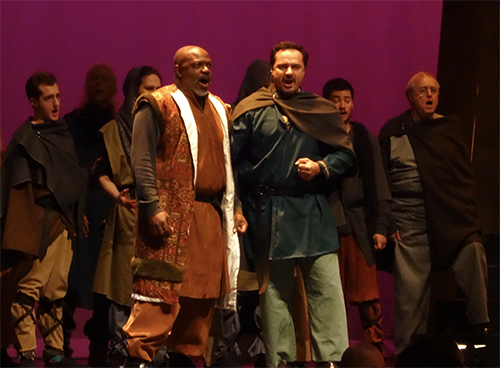
Baritone Michael Young sang beautifully, successfully projecting Macbeth’s vacillating personality. In the opening scene, his duet with bass Jonathan Stuckey (Banquo) featured excellent balance and outstanding expression. Stuckey continues to distinguish himself with restrained eloquence and refined bass color.
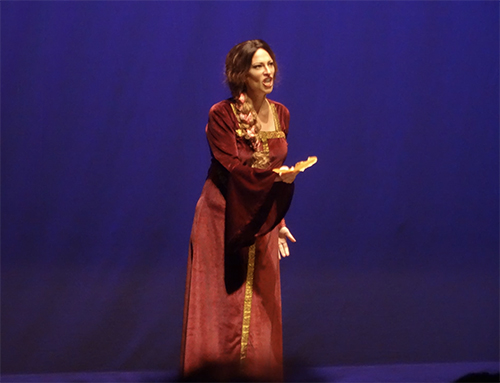
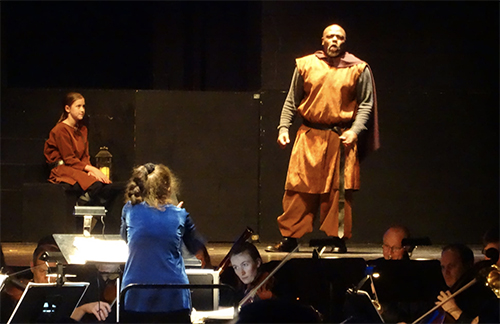
Tenor Dean La Salandra, as Seyton (Macbeth’s steward), distinguished himself in Scene 4 with a wonderful sound. In Scene 5, Farrell and Young led an intense choral ensemble. At first they celebrated Macbeth’s coronation, and later experienced his deterioration with guilt-ridden visions of demons.
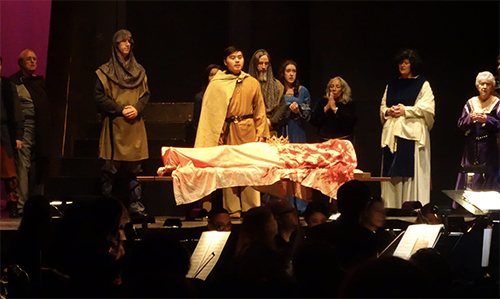
Macbeth, in his descent to madness, succumbed to further visions — particularly that of Banquo, and his heirs destined to rule Scotland. Brass and punctuating percussion supported the events. Young and Farrell closed the scene with passionate intensity.
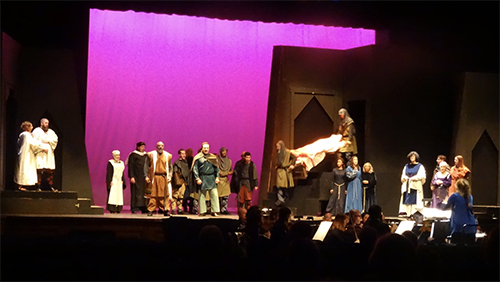
In Scene 4, Hernandez’ strong voice was particularly striking when he proclaimed Malcolm the new king. Overall, the production did justice to Verdi’s sensitive depiction of the tragic main characters.
Published on ClevelandClassical.com November 22, 2019.
Click here for a printable copy of this article


